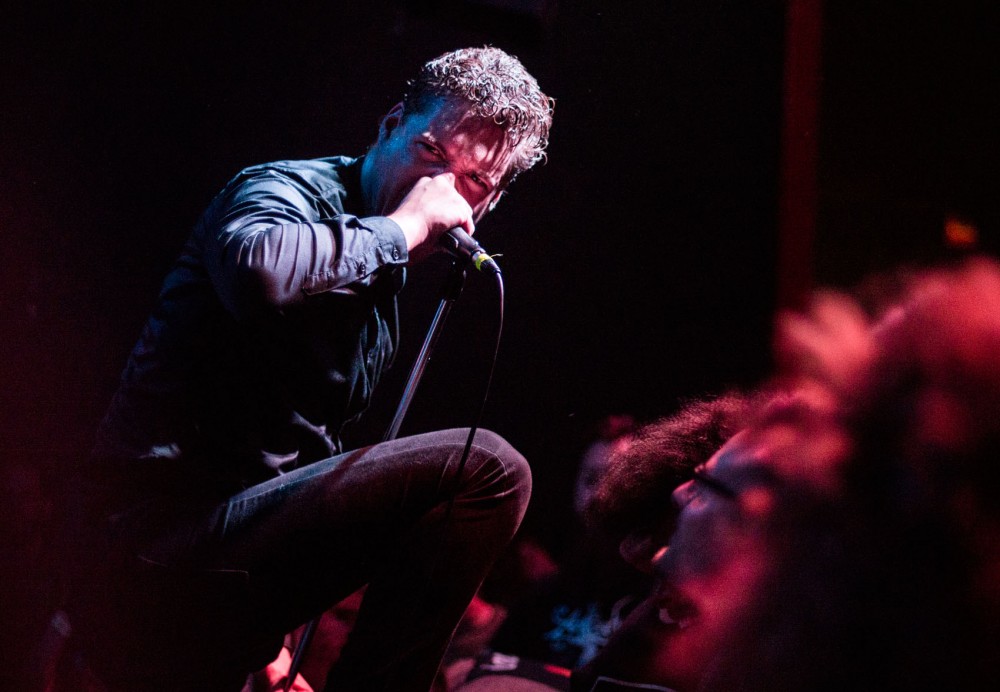Deafheaven frontman George Clarke locked hands with nearly everyone at the front of a sold-out crowd Monday night at the Triple Rock. From the start of the band’s five-track, hour-long set, he only broke from intense stares into the crowd to deliver harsh, screamed vocals over atmospheric black metal.
About six months ago, that same enigmatic screecher tweeted, “rolling stone just named us the metal album of the year and im fumbling around looking for a lighter so I can smoke weed out of an apple” — a casual response to yet another piece of recent Deafheaven praise.
The California quintet’s rise to the near-mainstream since the release of 2013’s “Sunbather” LP may have caught some band members off guard, though it wasn’t apparent at their Minneapolis tour stop. It’s not often a band described as black metal can break into the Billboard charts, but Deafheaven lived up to the hype Monday night.
They blistered through the entirety of “Sunbather,” taking the crowd from galloping black metal to sections that drew on shoegaze and post-rock elements. Aside from a few instrumental interludes (which aren’t just filler tracks), the record’s four primary songs are expansive, but accessible enough to those who often stay away from extreme, heavy genres.
Take Deafheaven’s opener for both the LP and Monday night’s set, “Dream House.” The nine-minute beast kicks in quick with a constant double bass drum beat and power chords picked so fast their textures resembled helicopters circling overhead. That chaos gave way to a gentle, clean guitar progression from Kerry McCoy that went on just a little longer than expected. The song concludes with a final anthemic burst from the band over which Clarke screams, “I want to dream,” which didn’t feel even a bit cheesy, surprisingly.
Deafheaven’s path is largely in line with that of any buzzband. They’ve garnered NPR praise, collaborated with a hip rapper (Antwon) and are now in the middle of running from one summer festival to the next.
Some bands hide behind the buzz once onstage, but Deafheaven didn’t have to. They were technically flawless (I’m surprised drummer Daniel Tracy had his limbs intact after the show), while being both highly personal and theatrical, courtesy of Clarke’s dominant stage presence.














